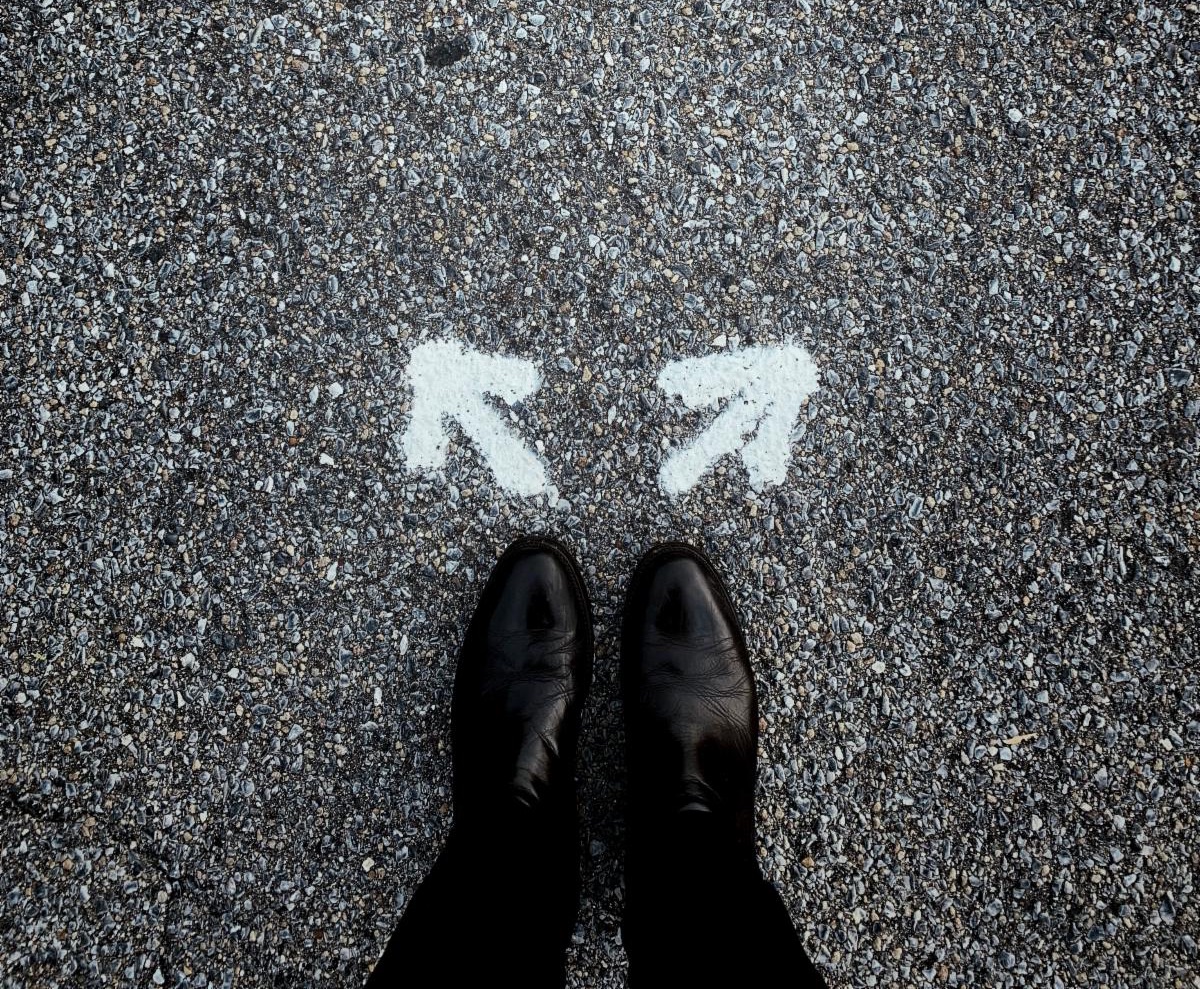There can be something enormously comforting about holiday traditions.
They provide a thread of continuity as well as something to look forward to each year.
Besides turkey and stuffing and all the rest, one my family celebrates is my hometown’s annual turkey trot, a race that’s been going on since 1937.
According to its website there were 11,064 registered entrants this year (plus many thousands more joining in).
And, I seem to have established a new tradition of my own as well.
Namely, that since last year, when I get into her car to pick up the runners in my family, my mother’s stereo system instantly recognizes my iPhone and starts playing my current Spotify playlist, seemingly without asking.
At first, it’s slightly startling, but then it reminds me––particularly as I’m exploring the theme of Storytelling (meditation HERE)––just how that happens on broader psychic and emotional levels when returning home.
So many things––from conversations to entire relationships––are exactly where we left them, ready for the thread to be picked up again.
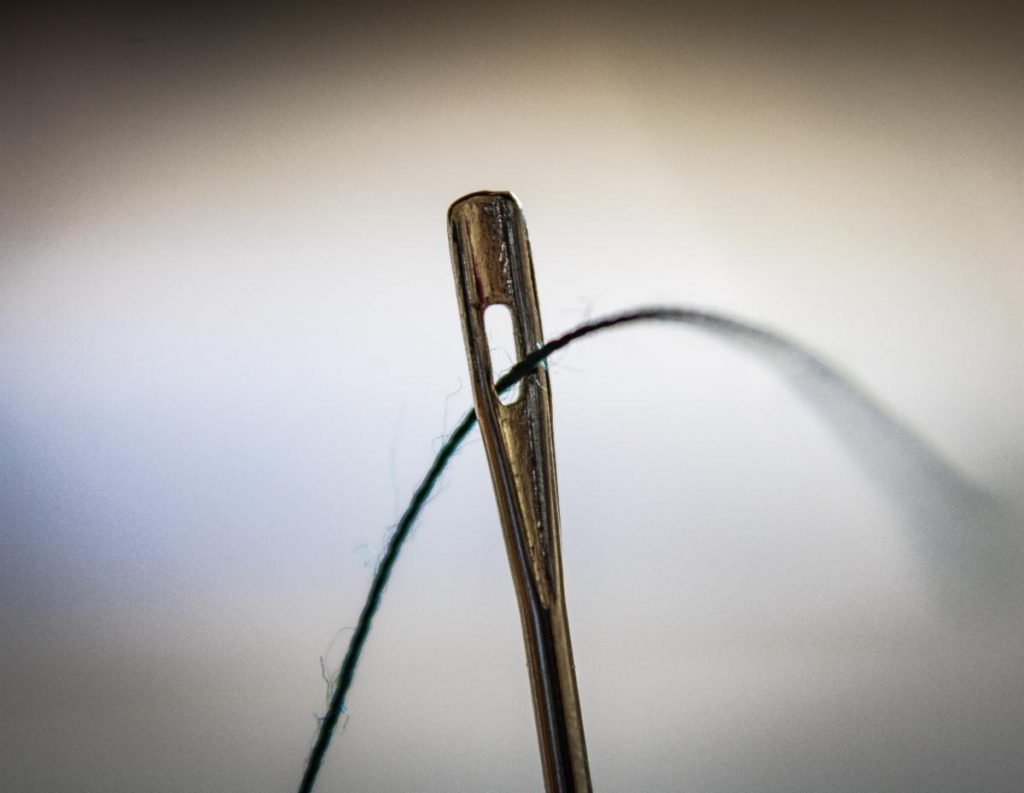
And at the same time, of course things are always shifting.
For example, my mother casually mentioned that the library I grew up with was closing and moving to a new location.
Built in 1937––one year after the first road race!––I assumed this landmark building would always be there.
I even wrote all my college application essays there, walking them to the post office just down the street.
Of course I needed to visit again right away to see the place that had so expanded my small-town worldview.
I have so many memories of formative experiences there that this perhaps final visit was bittersweet, and yet at the same time I also couldn’t help but smile at a synchronicity that indicates the connection might just be reciprocal.
You see, displayed above the check-out desk was this sign, something I’ve quoted twice this month in these newsletters.
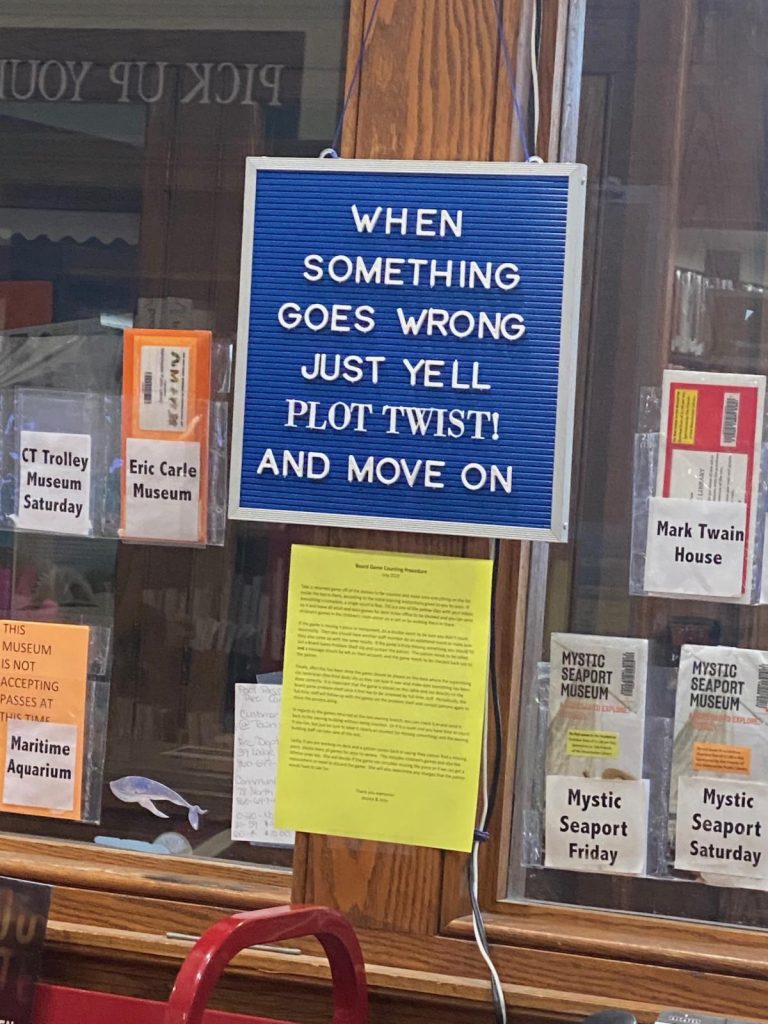
Beyond taking advantage of the library’s extensive book collection and the absolutely vital, pre-Internet reference room, I was also a great fan of the record albums that were available.
From Classical to Broadway to Contemporary, I took them out constantly.
This did not, however, stop me from wanting to acquire records of my own as soon as possible.
Requesting them for birthdays and Christmas, as well as purchasing them via my allowance and then with my paychecks from after-school and weekend jobs, I amassed a collection of a couple hundred that have been sleeping peacefully at my mother’s house (aka collecting dust) for decades.
Although my mother’s process of decluttering seems an endless, perhaps even Sisyphean labor, this holiday the “request” that I go through them was suddenly and particularly urgent.
The trouble was that although I was planning on borrowing Malibu’s parent’s car, that fell through last minute, leaving the train as our best bet for transportation.
Thus, rather than simply carting them all off to my own storage space, some brutal (and dusty) decision making was required.
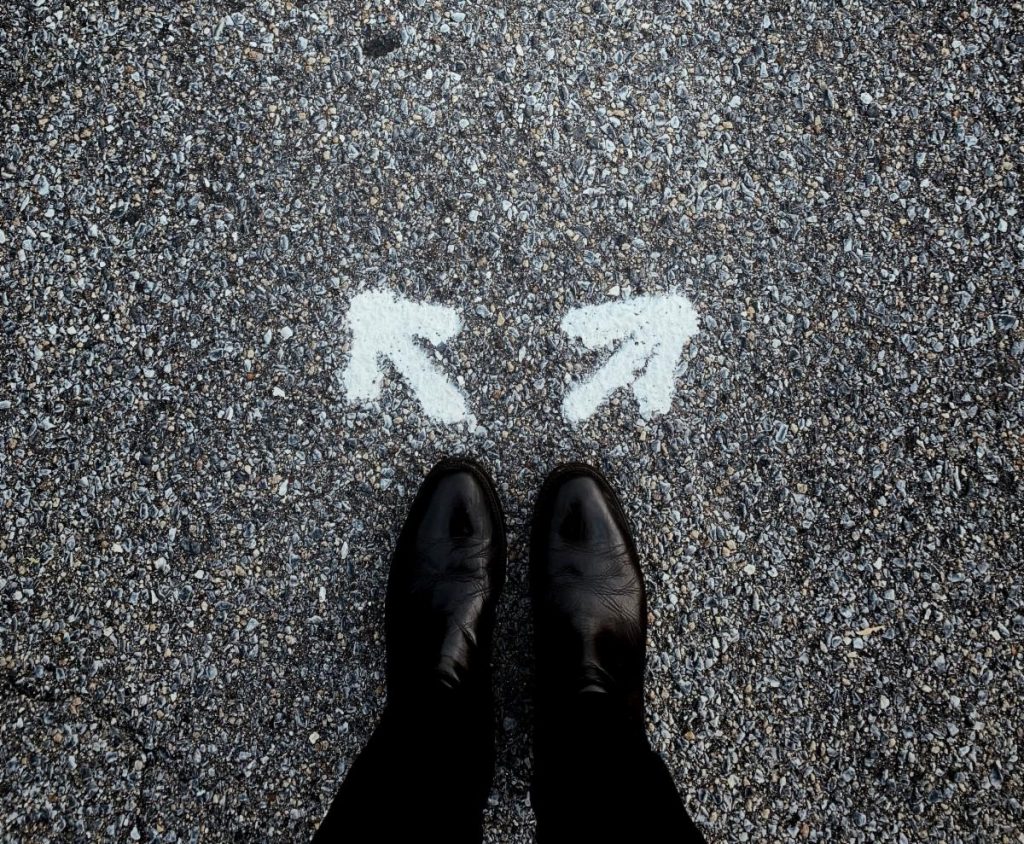
In general, I love a good organizational challenge but I admit to being initially dumfounded.
On the one hand, as much of an audiophile as I am (Spotify says I’m in the top 1% of its listeners), these were albums I haven’t really looked at, much less, played, in decades.
It would not have been entirely unreasonable to have cold-bloodedly said, “Sell, donate, or give them all away,” without a second thought.
On the other hand, for many, if not most, of these albums, I have vivid narrative memories.
Sometimes that was saving up for a favorite artist’s new release.
Or I’d recall the triumphant search for a rare recording I’d read something intriguing about and somehow managed to track downto a vintage record shop in the East Village.
And, of course, there were ones that I’d loved so much I’d practically worn them through, playing favorite tracks over and over again.
Almost all of this music is now in neatly organized playlists on Spotify, but here were the original sources, the vehicles that delivered it to me first.
Far more than just the music, I didn’t want to give away the STORIES around these albums.
Finally, to add to the complications, although it seems to be pretty much a law in hipster Bushwick where I live that all 20-somethings compulsively collect vinyl LPs, I no longer have the stereo system to play them.
While Wayne Dyer famously said––
“Don’t Die with Your Music Still in You”––
There’s something differently sad about dragging albums across state lines only to have them rest in another storage facility.
Sigh…
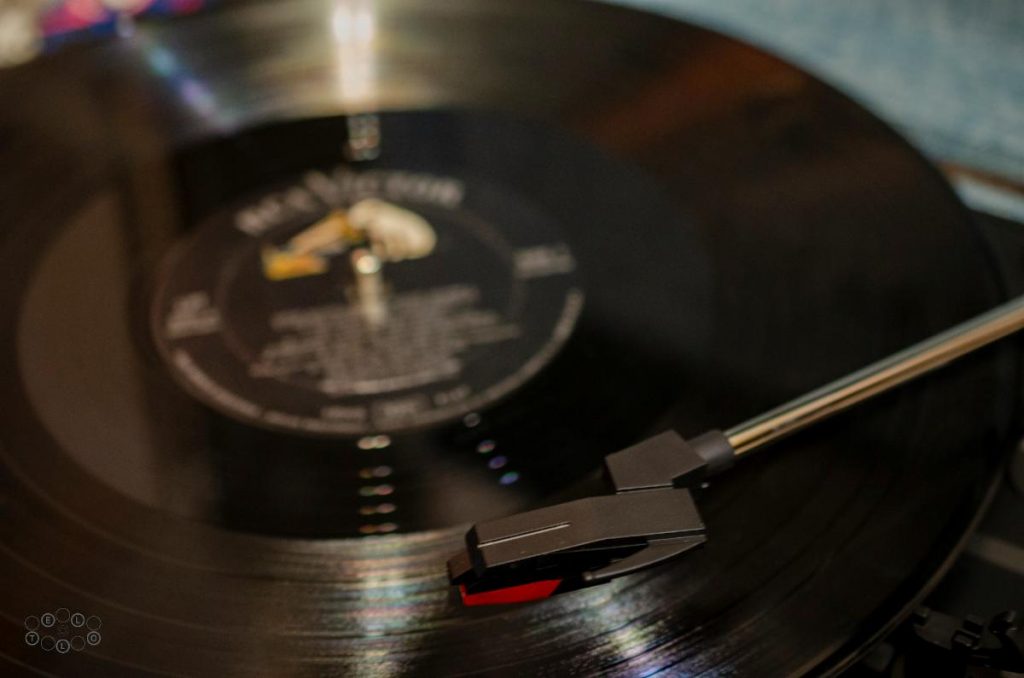
Sidebar:
I couldn’t help but notice that on many of the albums there was a picture of Vlad.
Or, more accurately, Vlad looks exactly like the dog in the old RCA logo.
What I’ve since learned from research is that an English painter
named Francis Barraud inherited an early cylinder phonograph player when his brother Mark died, along with recordings of Mark’s voice.
Apparently, Mark’s fox terrier Nipper was enthralled when these were played, leading Mark’s brother to paint the scene and entitle it “His Master’s Voice.”
No one wanted the canvas, however, until a few years later when an early gramophone company bought it, even changing their name to HMV after the painting.
After a few corporate acquisitions, RCA bought the latest incarnation of the company in the 1920s and it became their corporate logo.
For whatever quirky reasons, it makes me smile to think that a Vlad lookalike inspired what many consider one of the very earliest examples of corporate branding.
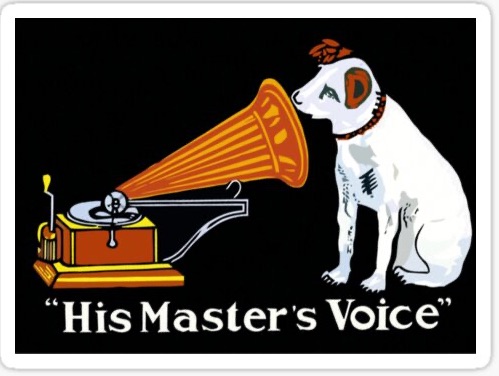
In any case, the Sophie’s Choice of living life with as a clutter-free minimalist or with (perhaps unnecessary) story-telling sentimentwas untenable.
Getting rid of all the records––especially knowing Vlad’s image was on dozens of them––seemed far too brutal.
In the end, I adopted my own version Marie Kondo’s “Does this spark joy?” as my criterion for which records I could leave behind and which I would keep.
Returning to this month’s theme of Storytelling, I realized the actual question I was asking was “Will this spark FUTURE joy?”
In other words, I asked myself if I could imagine listening to an album again in some near-future reality where I have a way to play vinyl, especially sharing it with friends.
I enjoyed telling myself a story about this potential moment, in some future home, benchmarking each album as to whether or not I’d actually put it on my future turnstile.
A certain ruthless rigor was still required, but somehow I managed to parcel off several dozen albums in twine that I’ll pick up on the next trip home.
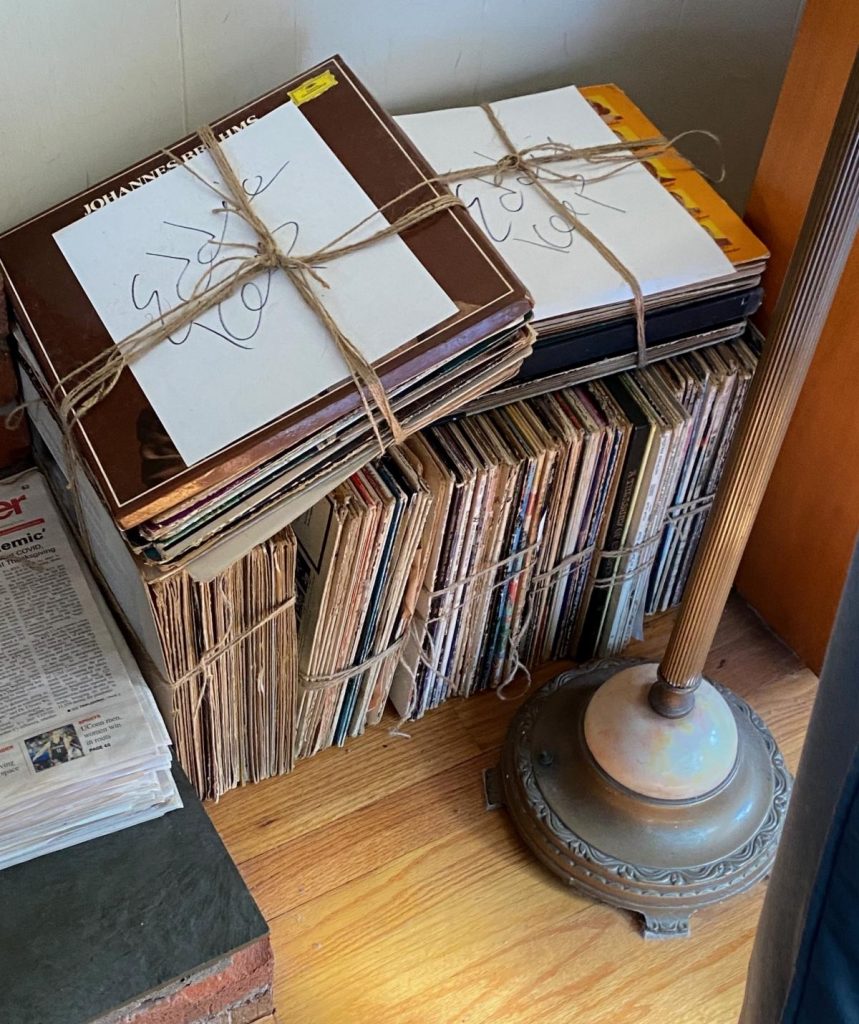
Beyond all this recycling of tradition and telling new stories, I also noticed another significant change at the library.
Namely, that a general amnesty has been declared on all truant readers, something that would, had it been applied in my day, have saved me a small fortune.
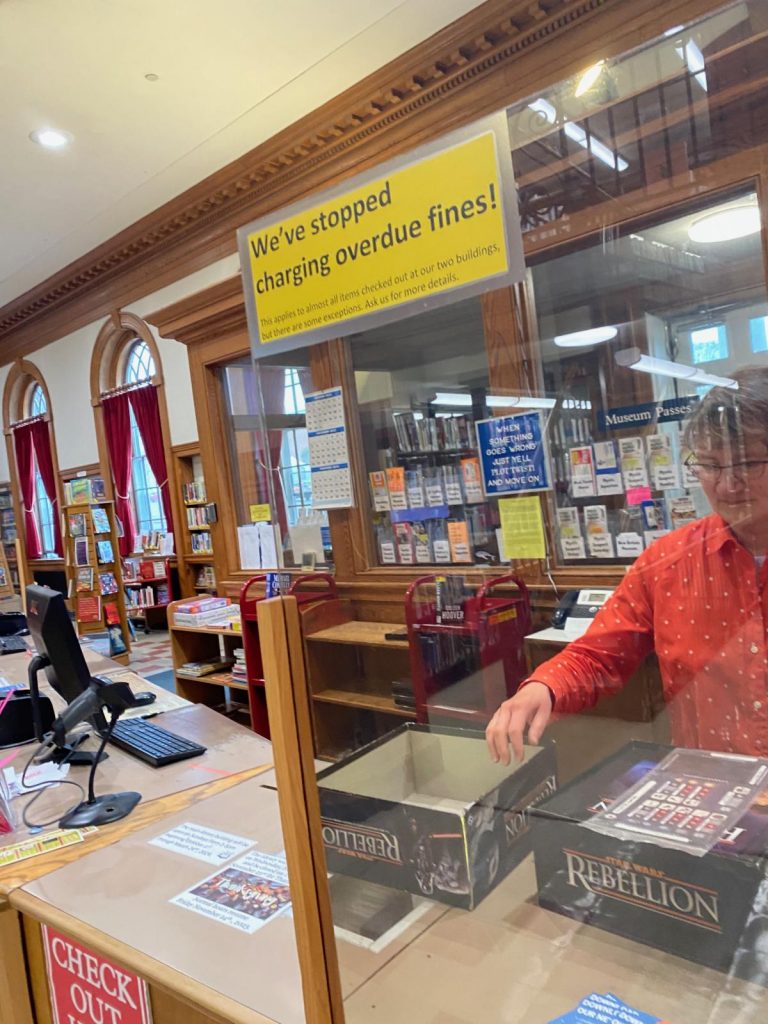
Asking the Librarian about this, she shared that this was a recent change, one she said was part of a larger movement.
Indeed, I’ve since learned that on October 5, 2021 the New York Public Library announced that “all late fines have been eliminated going forward—and all existing fines and fees in patron accounts have been cleared.”
(Again, this would have been hugely significant for High School Me.)
Somehow the bureaucracy has realized that fines can be a barrier to access and can create unnecessarily adversarial relationshipsbetween librarians and the people who actually want to read.
The press release (and the librarian I spoke to) revealed that they really don’t want people to be ashamed of their fines, or unable to pay them and therefore forced to stop using the library entirely.
Thus, while I’m delighted to have painstakingly selected my favorite albums, moved by the stories of their past and inspired by the narratives I’m envisioning for their future, I’m also considering adopting a new tradition as well.
Perhaps when returning home, along with road races and parceling up all the best stories (and the albums) we want to keep, like the Mary Cheney Public Library, we could also adopt an element of forgiveness, of granting a general amnesty.
Indeed, just think how much easier a new tradition of letting some parts of our past go would make it for everyone to return home again.
Namaste for Now,

